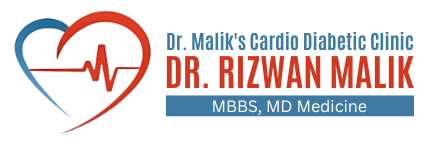1. Thyroid & Diet: The Real Connection
Thyroid hormone production is regulated by several nutrients, including iodine, selenium, zinc, vitamin D, B12, magnesium, and iron A balanced intake supports thyroid enzyme activity, hormone conversion, and nutrient absorption, but diet alone cannot cure thyroid disease
2. Key Nutrients That Fuel Thyroid Health
- Iodine – Building block for T3/T4 hormones. Adults need ~150 µg/day; higher during pregnancy
- Selenium – Aids hormone synthesis and antioxidant defence. Sourced from nuts and eggs
- Zinc – Essential for hormone production and uptake. Found in meat, legumes, seeds
- Vitamin D – Supports immune modulation and thyroid autoimmunity
- Vitamin B12 & Iron – Crucial for cell metabolism; deficiencies worsen fatigue
- Magnesium – Helps convert T4 to active T3
A thyroid-friendly diet includes iodized salt, seafood, dairy, nuts, fruits, leafy veg, fish, and fortified foods.
3. Debunking Diet & Thyroid Myths
- “Cut cruciferous veggies” – false. Normal intake isn’t problematic; extremely high raw consumption may affect iodine only in deficiency
- “Diet alone can cure hypothyroidism” – false. Medication is essential; diet supports treatment
- “High iodine intake is always good” – false. Both deficiency and excess can cause dysfunction
- “Soy or gluten always harmful” – false. Soy may impact absorption at high intakes; gluten matters only in those with intolerance
4. Diet Recommendations: What to Eat (and Why)
- Whole foods – Fruits, vegetables, lean proteins, whole grains for antioxidants and fiber
- Iodine-rich – Iodized salt, dairy, eggs, fish
- Selenium & Zinc – Brazil nuts, eggs, meat, seeds
- Omega-3 & antioxidants – Fish, walnuts, berries
- Probiotics/prebiotics – Yogurt, kefir, fiber to support thyroid gut axis
5. Lifestyle Habits to Support Thyroid
- Consistent medication timing – On empty stomach, away from calcium/iron
- Stress management & sleep – Improves hormone balance
- Regular exercise – Boosts metabolism and mood
- Gut health – Supports nutrient absorption; consider probiotics
6. Simple Thyroid-Supportive Diet Plan
- Breakfast: Oats or millet porridge + nuts + Greek yogurt
- Snack: Fresh fruit + sunflower or pumpkin seeds
- Lunch: Roti/rice, dal/fish, mixed veg (including crucifers cooked)
- Evening: Herbal tea (ginger/turmeric) + roasted seeds
- Dinner: Vegetable soup or grilled paneer/chicken with salad.
- Before bed: Warm milk with turmeric
A nutrient-rich, balanced diet supports thyroid health—but doesn’t replace medication. Focus on iodine, selenium, zinc, vitamin D, iron, B12, and fiber, while debunking myths around cruciferous veg, high iodine, soy, or gluten. Combine with good lifestyle habits and regular medical follow-up for optimal thyroid well-being.
FAQs
Q1. Can too much iodine cause thyroid issues?
Yes—excessive iodine can trigger or worsen thyroid disorders, especially autoimmune ones; aim for 150–250 µg daily
Q2. Will cruciferous vegetables harm my thyroid?
Not in typical amounts. Benefits of fiber and micronutrients outweigh minimal anti-thyroid activity, especially when cooked .
Q3. Are probiotics beneficial?
Yes—healthy gut microbiota aids deiodinase enzymes and micronutrient absorption, supporting thyroid function
